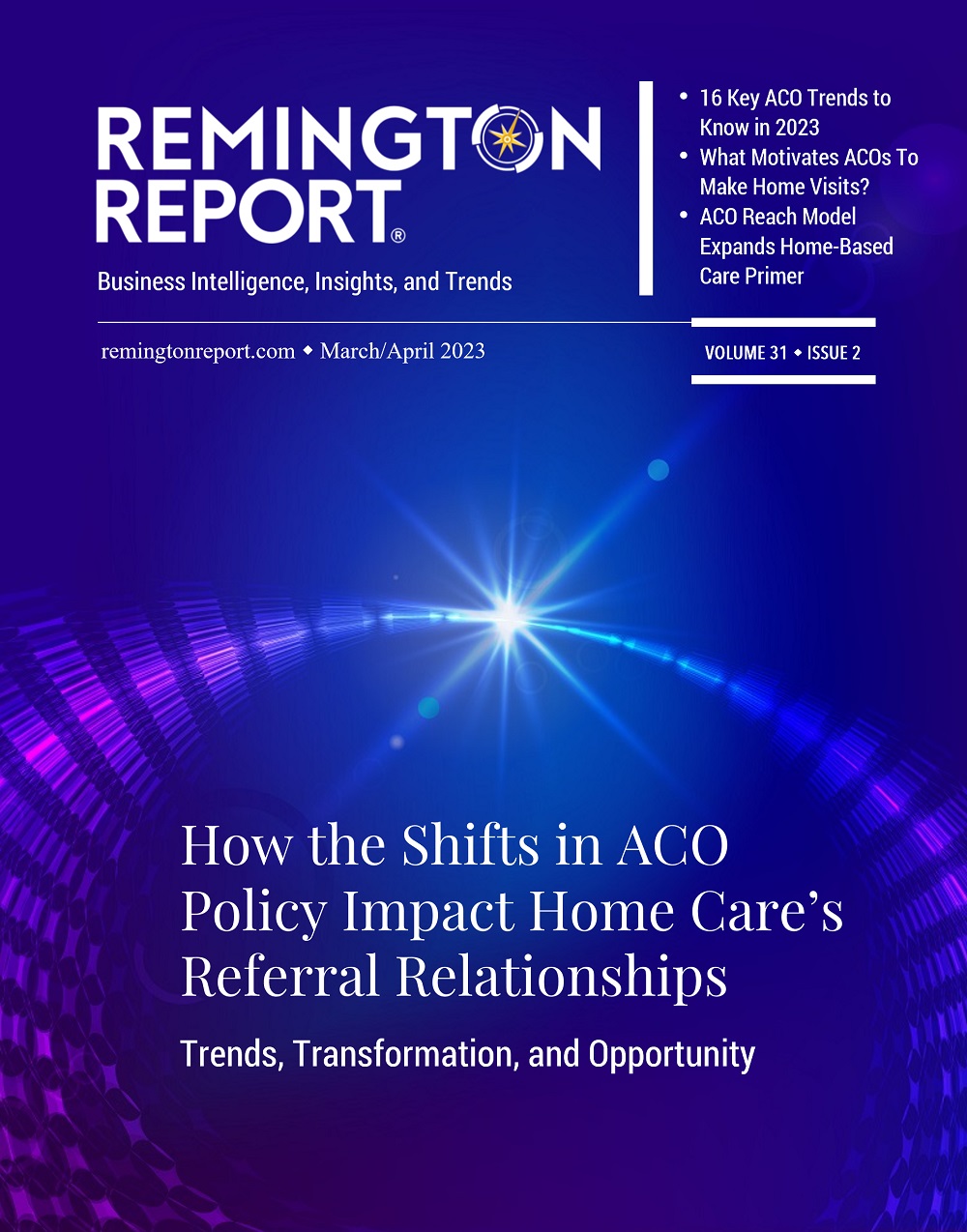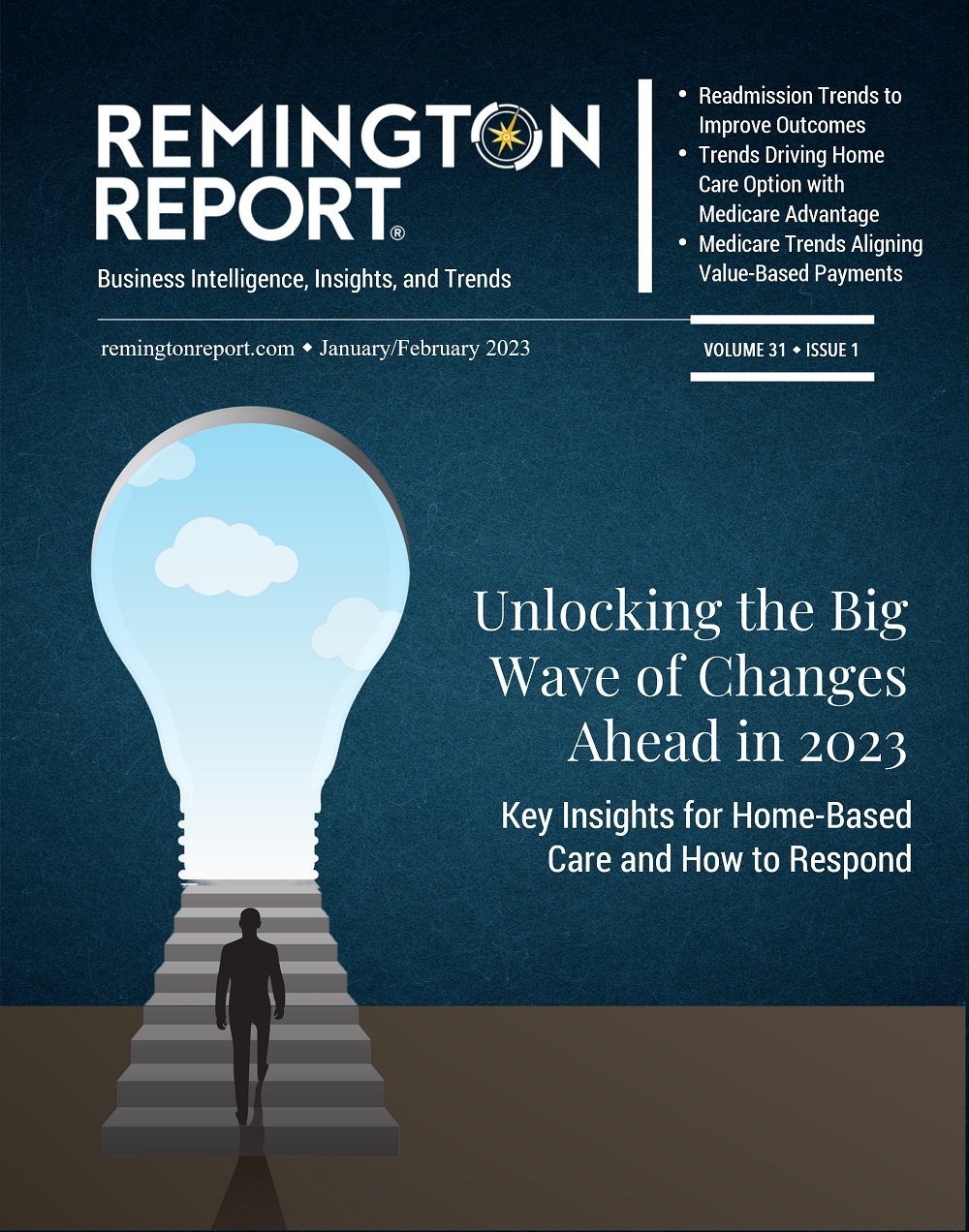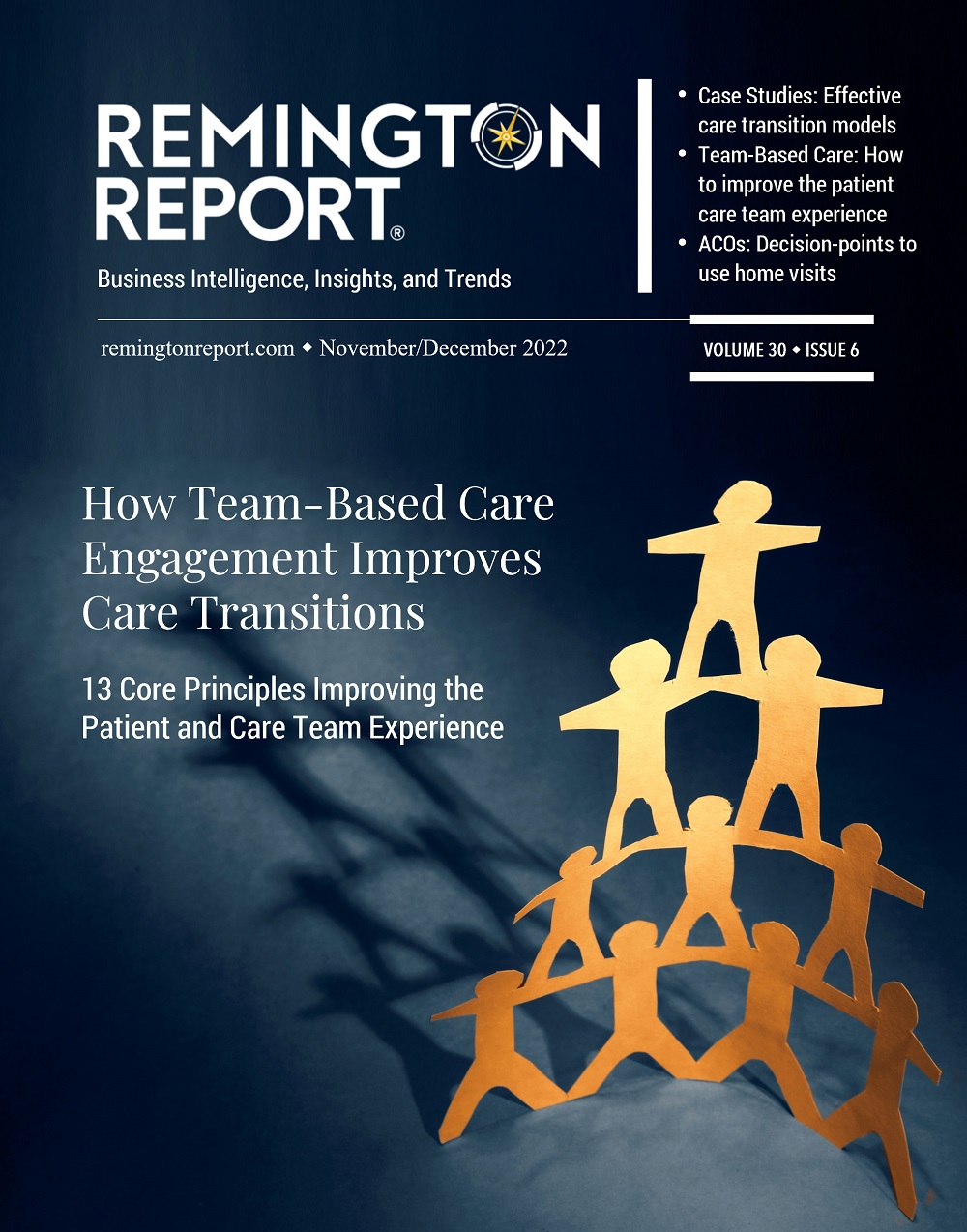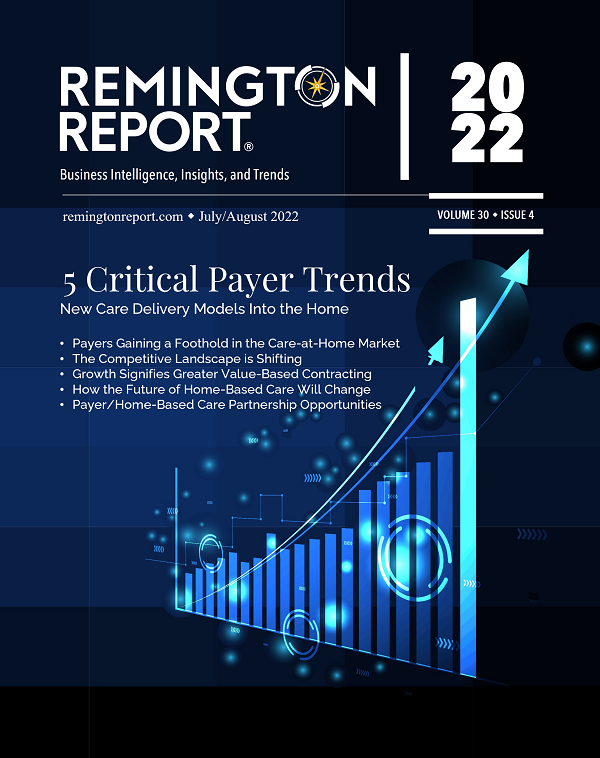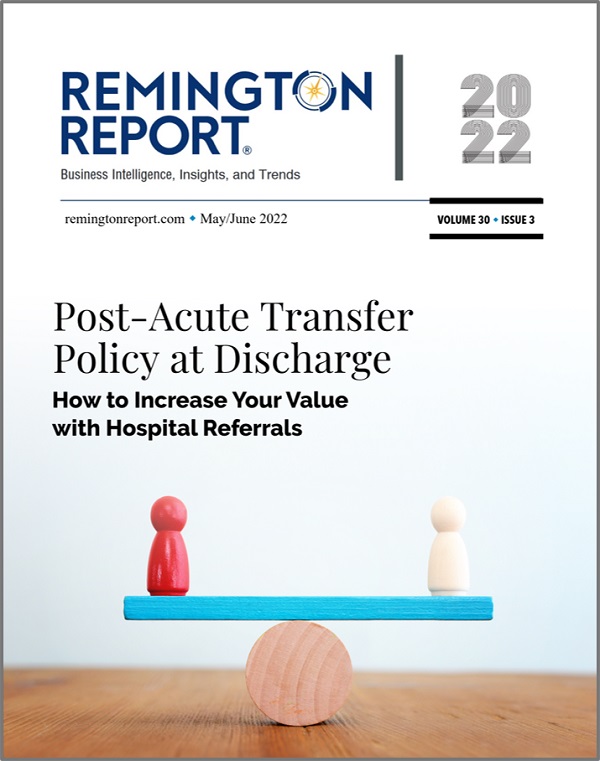INTERACTIVE FEATURES: When viewing this article on an electronic device, note that web addresses are live links. Just click the link to visit that web page.
Click for instructions for moving the PDF into Kindle, Nook, Apple iBooks, and Apple Library.
“CMS has provided blanket waivers with a retroactive effective date of March 1, 2020 through the end of the emergency declaration to help providers during COVID-19. We gathered the waivers for discharge planning, in-home care providers and other post-acute care settings.”
Discharge Planning
Detailed Information Sharing for Discharge Planning for Hospitals and CAHs. CMS is waiving the requirement 42 CFR §482.43(a)(8), §482.61(e), and §485.642(a)(8) to provide detailed information regarding discharge planning, described below:
- The hospital, psychiatric hospital, and CAH must assist patients, their families, or the patient’s representative in selecting a post-acute care provider by using and sharing data that includes, but is not limited to, home health agency (HHA), skilled nursing facility (SNF), inpatient rehabilitation facility (IRF), and long-term care hospital (LTCH) quality measures and resource use measures. The hospital must ensure that the post-acute care data on quality measures and resource use measures are relevant and applicable to the patient’s goals of care and treatment preferences.
- CMS is maintaining the discharge planning requirements that ensure a patient is discharged to an appropriate setting with the necessary medical information and goals of care as described in 42 CFR §482.43(a)(1)-(7) and (b).
Limiting Detailed Discharge Planning for Hospitals. CMS is waiving all the requirements and subparts at 42 CFR §482.43(c) related to post-acute care services so as to expedite the safe discharge and movement of patients among care settings, and to be responsive to fluid situations in various areas of the country. CMS is maintaining the discharge planning requirements that ensure a patient is discharged to an appropriate setting with the necessary medical information and goals of care as described in 42 CFR §482.43(a)(1)-(7) and (b). CMS is waiving the more detailed requirement that hospitals ensure those patients discharged home and referred for HHA services, or transferred to a SNF for post-hospital extended care services, or transferred to an IRF or LTCH for specialized hospital services, must:
- 482.43(c)(1): Include in the discharge plan a list of HHAs, SNFs, IRFs, or LTCHs that are available to the patient.
- 482.43(c)(2): Inform the patient or the patient’s representative of their freedom to choose among participating Medicare providers and suppliers of post-discharge services.
- 482.43(c)(3): Identify in the discharge plan any HHA or SNF to which the patient is referred in which the hospital has a disclosable financial interest, as specified by the Secretary, and any HHA or SNF that has a disclosable financial interest in a hospital under Medicare.
Home Health Agencies (HHAs)
Requests for Anticipated Payment (RAPs). CMS is allowing Medicare Administrative Contractors (MACs) to extend the auto-cancellation date of Requests for Anticipated Payment (RAPs) during emergencies.
Reporting. CMS is providing relief to HHAs on the timeframes related to OASIS Transmission through the following actions below:
- Extending the 5-day completion requirement for the comprehensive assessment to 30 days.
- Waiving the 30-day OASIS submission requirement. Delayed submission is permitted during the PHE.
Initial Assessments. CMS is waiving the requirements at 42 CFR §484.55(a) to allow HHAs to perform Medicare-covered initial assessments and determine patients’ homebound status remotely or by record review. This will allow patients to be cared for in the best environment for them while supporting infection control and reducing impact on acute care and long- term care facilities. This will allow for maximizing coverage by already scarce physician, and advanced practice clinicians, and allow those clinicians to focus on caring for patients with the greatest acuity.
Waive Onsite Visits for HHA Aide Supervision. CMS is waiving the requirements at 42 CFR §484.80(h), which require a nurse to conduct an onsite visit every two weeks. This would include waiving the requirements for a nurse or other professional to conduct an onsite visit every two weeks to evaluate if aides are providing care consistent with the care plan, as this may not be physically possible for a period of time. This waiver is also temporarily suspending the 2-week aide supervision by a registered nurse for home health agencies requirement at §484.80(h)(1), but virtual supervision is encouraged during the period of the waiver.
Allow Occupational Therapists (OTs), Physical Therapists (PTs), and Speech Language Pathologists (SLPs) to Perform Initial and Comprehensive Assessment for all Patients. CMS is waiving the requirements in 42 CFR § 484.55(a)(2) and § 484.55(b)(3) that rehabilitation skilled professionals may only perform the initial and comprehensive assessment when only therapy services are ordered. This temporary blanket modification allows any rehabilitation professional (OT, PT, or SLP) to perform the initial and comprehensive assessment for all patients receiving therapy services as part of the plan of care, to the extent permitted under state law, regardless of whether or not the service establishes eligibility for the patient to be receiving home care. The existing regulations at § 484.55(a) and (b)(2) would continue to apply; rehabilitation skilled professionals would not be permitted to perform assessments in nursing only cases. We would continue to expect HHAs to match the appropriate discipline that performs the assessment to the needs of the patient to the greatest extent possible. Therapists must act within their state scope of practice laws when performing initial and comprehensive assessments, and access a registered nurse or other professional to complete sections of the assessment that are beyond their scope of practice. Expanding the category of therapists who may perform initial and comprehensive assessments provides HHAs with additional flexibility that may decrease patient wait times for the initiation of home health services.
12-hour Annual In-service Training Requirement for Home Health Aides. CMS is modifying the requirement at 42 CFR §484.80(d) that home health agencies must assure that each home health aide receives 12 hours of in-service training in a 12-month period. In accordance with section 1135(b)(5) of the Act, we are postponing the deadline for completing this requirement throughout the COVID-19 PHE until the end of the first full quarter after the declaration of the PHE concludes. This will allow aides and the registered nurses (RNs) who teach in-service training to spend more time delivering direct patient care and additional time for staff to complete this requirement.
Detailed Information Sharing for Discharge Planning for Home Health Agencies. CMS is waiving the requirements of 42 CFR §484.58(a) to provide detailed information regarding discharge planning, to patients and their caregivers, or the patient’s representative in selecting a post-acute care provider by using and sharing data that includes, but is not limited to, (another) home health agency (HHA), skilled nursing facility (SNF), inpatient rehabilitation facility (IRF), and long-term care hospital (LTCH) quality measures and resource use measures.
This temporary waiver provides facilities the ability to expedite discharge and movement of residents among care settings. CMS is maintaining all other discharge planning requirements.
Clinical Records: In accordance with section 1135(b)(5) of the Act, CMS is extending the deadline for completion of the requirement at 42 CFR §484.110(e), which requires HHAs to provide a patient a copy of their medical record at no cost during the next visit or within four business days (when requested by the patient). Specifically, CMS will allow HHAs ten business days to provide a patient’s clinical record, instead of four.
Home Health Agencies (HHAs) and Hospice
Training and Assessment of Aides: CMS is waiving the requirement at 42 CFR §418.76(h)(2) for Hospice and 42 CFR §484.80(h)(1)(iii) for HHAs, which require a registered nurse, or in the case of an HHA a registered nurse or other appropriate skilled professional (physical therapist/occupational therapist, speech language pathologist) to make an annual onsite supervisory visit (direct observation) for each aide that provides services on behalf of the agency. In accordance with section 1135(b)(5) of the Act, we are postponing completion of these visits. All postponed onsite assessments must be completed by these professionals no later than 60 days after the expiration of the PHE.
Quality Assurance and Performance Improvement (QAPI). CMS is modifying the requirement at 42 CFR §418.58 for Hospice and §484.65 for HHAs, which requires these providers to develop, implement, evaluate, and maintain an effective, ongoing, hospice/HHA-wide, data driven QAPI program. Specifically, CMS is modifying the requirements at §418.58(a)–(d) and §484.65(a)–(d) to narrow the scope of the QAPI program to concentrate on infection control issues, while retaining the requirement that remaining activities should continue to focus on adverse events. This modification decreases burden associated with the development and maintenance of a broad-based QAPI program, allowing the providers to focus efforts on aspects of care delivery most closely associated with COVID-19, and tracking adverse events during the PHE. The requirement that HHAs and hospices maintain an effective, ongoing, agency-wide, data-driven quality assessment and performance improvement program will remain.
Hospice
Waive Requirement for Hospices to Use Volunteers. CMS is waiving the requirement at 42 CFR §418.78(e) that hospices are required to use volunteers (including at least 5% of patient care hours). It is anticipated that hospice volunteer availability and use will be reduced related to COVID-19 surge and potential quarantine.
Comprehensive Assessments. CMS is waiving certain requirements at 42 CFR §418.54 related to updating comprehensive assessments of patients. This waiver applies the timeframes for updates to the comprehensive assessment found at §418.54(d). Hospices must continue to complete the required assessments and updates; however, the timeframes for updating the assessment may be extended from 15 to 21 days.
Waive Non-Core Services. CMS is waiving the requirement for hospices to provide certain non-core hospice services during the national emergency, including the requirements at 42 CFR §418.72 for physical therapy, occupational therapy, and speech-language pathology.
Waived Onsite Visits for Hospice Aide Supervision. CMS is waiving the requirements at 42 CFR §418.76(h), which require a nurse to conduct an onsite supervisory visit every two weeks. This would include waiving the requirements for a nurse or other professional to conduct an onsite visit every two weeks to evaluate if aides are providing care consistent with the care plan, as this may not be physically possible for a period of time.
Hospice Aide Competency Testing Allow Use of Pseudo Patients. 42 CFR 418.76(c)(1). CMS is temporarily modifying the requirement in § 418.76(c)(1) that a hospice aide must be evaluated by observing an aide’s performance of certain tasks with a patient. This modification allows hospices to utilize pseudo patients such as a person trained to participate in a role-play situation or a computer-based mannequin device, instead of actual patients, in the competency testing of hospice aides for those tasks that must be observed being performed on a patient. This increases the speed of performing competency testing and allows new aides to begin serving patients more quickly without affecting patient health and safety during the public health emergency (PHE).
12 hour Annual In-service Training Requirement for Hospice Aides. 42 CFR 418.76(d). CMS is waiving the requirement that hospices must assure that each hospice aide receives 12 hours of in-service training in a 12 month period. This allows aides and the registered nurses (RNs) who teach in-service training to spend more time delivering direct patient care.
Annual Training. CMS is modifying the requirement at 42 CFR §418.100(g)(3), which requires hospices to annually assess the skills and competence of all individuals furnishing care and provide in-service training and education programs where required. Pursuant to section 1135(b)(5) of the Act, we are postponing the deadline for completing this requirement throughout the COVID-19 PHE until the end of the first full quarter after the declaration of the PHE concludes. This does not alter the minimum personnel requirements at 42 CFR §418.114. Selected hospice staff must complete training and have their competency evaluated in accordance with unwaived provisions of 42 CFR Part 418.
Flexibility for Medicare Telehealth Services
Eligible Practitioners. Pursuant to authority granted under the Coronavirus Aid, Relief, and Economic Security Act (CARES Act) that broadens the waiver authority under section 1135 of the Social Security Act, the Secretary has authorized additional telehealth waivers. CMS is waiving the requirements of section 1834(m)(4)(E) of the Act and 42 CFR § 410.78 (b)(2) which specify the types of practitioners that may bill for their services when furnished as Medicare telehealth services from the distant site. The waiver of these requirements expands the types of health care professionals that can furnish distant site telehealth services to include all those that are eligible to bill Medicare for their professional services. This allows health care professionals who were previously ineligible to furnish and bill for Medicare telehealth services, including physical therapists, occupational therapists, speech language pathologists, and others, to receive payment for Medicare telehealth services.

Lisa Remington is widely recognized as one of the foremost futurists in the home care industry, focusing on healthcare trends and disruptive innovation. She serves as the president and publisher of the Remington Report magazine and is also the President of Remington’s Think Tank Strategy Institute. Lisa provides strategic advice and education to over 10,000 organizations, assisting them in developing transformative strategies for growth and their future implications. She closely monitors complex trends and forces of change to develop effective strategic approaches.



